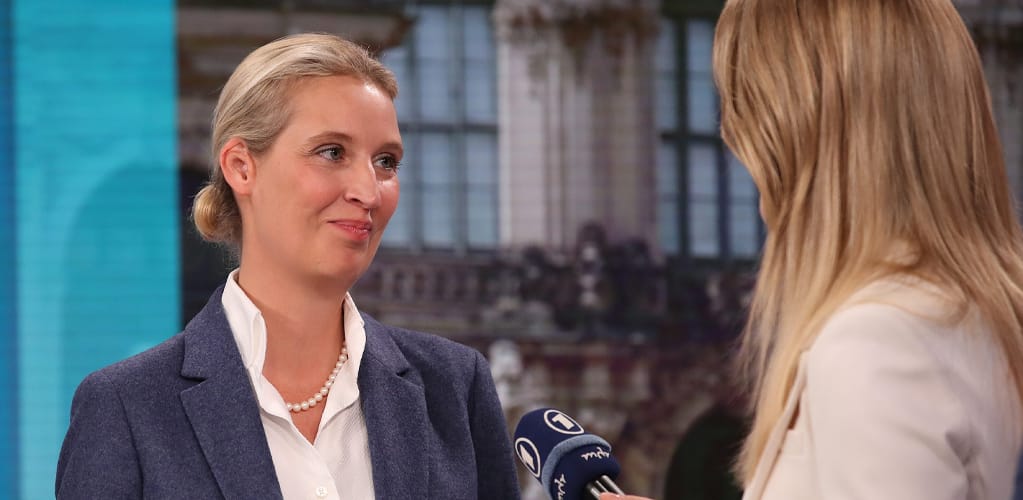
Teutonic ‘goddess’ who leads Germany’s premier far-right party is a puzzle
Alice Weidel, leader of Germany’s far-right AfD, presents a paradox. A multilingual, Swiss-based ex-banker with a diverse family, she once embraced conservative moderation but now champions anti-immigration rhetoric. Opportunism or conviction?
The Alternative for Germany (AfD) has just posted the best result by a German far-right party since before World War II. Its leader is Alice Weidel, a very blonde model of German womanhood, someone who might have once been called a ‘Teutonic goddess’. She had offered herself up as a possible chancellor, and in many ways, Ms Weidel could make a reasonable case to lead… a company; perhaps even a country.
Once a banker, she has a PhD, is fluent in Mandarin and English and is raising two boys with her Sri Lankan-born filmmaker wife in Switzerland.
Ms Weidel’s thesis was on China’s pension system, which suggests an outward-facing worldview. It was financed by the Konrad Adenauer Foundation, an organisation affiliated with the centre-right CDU party (which won the February 23 election).
She served as an analyst for Goldman Sachs and Allianz Global Investors in Frankfurt.
Before joining the AfD, she had her own consulting firm.
Much of the above suggests Ms Weidel started out as a fairly moderate conservative — both on politics and economics. The way she juggles family life across two countries suggests a commitment to European unity.
Almost nothing points to a person who leads a virulently anti-immigrant party and spreads untruths that Hitler was a “a socialist, communist guy”.
Why is Ms Weidel with the AfD?
She joined it in 2013, the very year it was founded by a group of eurosceptic academics. At the time, the AfD’s purpose was to argue against bailouts to countries affected by the eurozone debt crisis. The stance was meant to champion Germany’s sovereignty despite the European Union.
Ms Weidel signed up before others jumped aboard — the anti-globalisation crowd, libertarian sorts, and people who rail against the current system. That included neo-Nazis. She seems to have joined the AfD before it moved sharply right to target immigration. Now, of course, immigration is the AfD’s signature issue and presumably also that of its leader, Ms Weidel.
And yet, her bio doesn’t suggest a person whose world is bounded by an ugly and cruel debate on immigration, necessary though it is for a country to discuss such issues and implement border controls.
So, might Ms Weidel be that doubly dreadful thing: a far-right opportunist?

GOING FURTHER
A West German and openly gay woman—is Alice Weidel a surprising choice to lead Germany’s far-right AfD? | FORTUNE
Alice Weidel, Germany’s most vilified—and powerful—female politician | THE ECONOMIST
Alice Weidel took the German far right to new heights. Here’s how she did it | POLITICO
Elon Musk congratulates AfD’s Alice Weidel on far-right gains in German election | THE GUARDIAN
Alice Weidel: The woman at the top of Germany's far-right AfD party | SKY NEWS
Germany's AfD in the Bundestag: 'We have a reason to worry' | DEUTSCHE WELLE
Can Alternative for Germany be stoppep? | FINANCIAL TIMES
[ Europeans TODAY ]





[Read our Comments Guidelines]